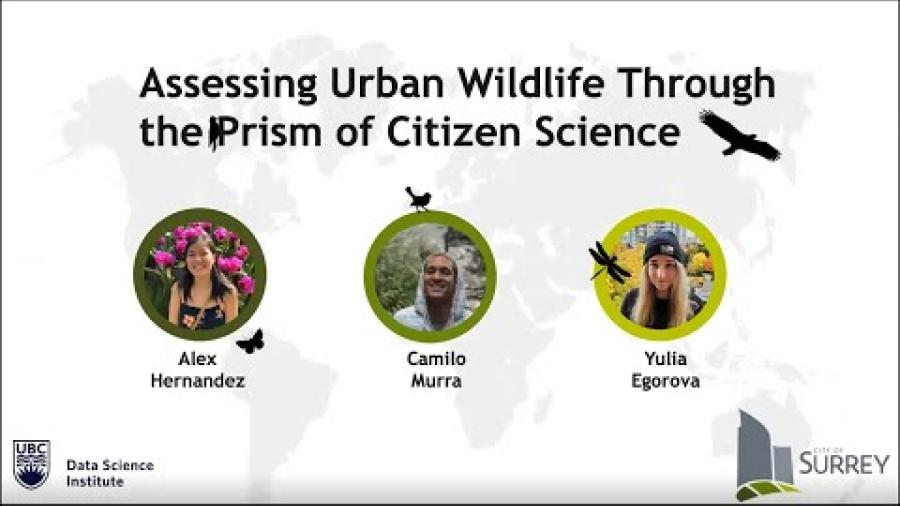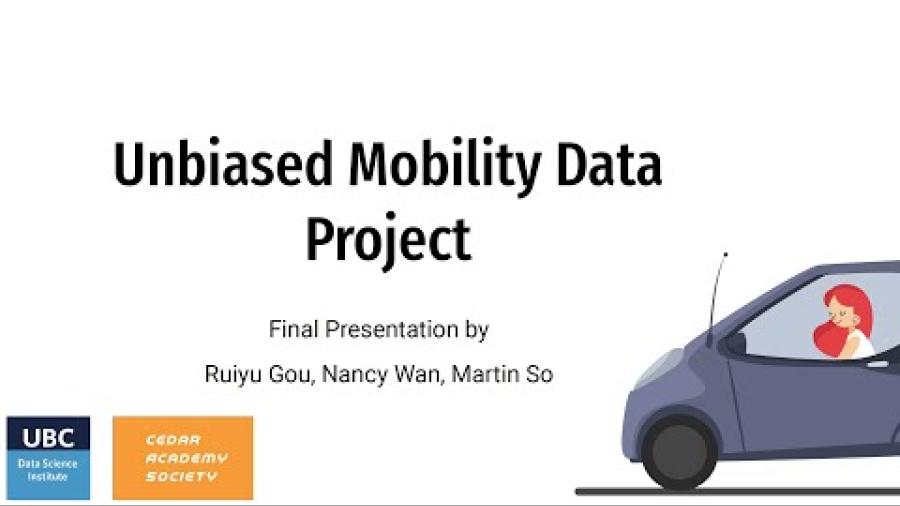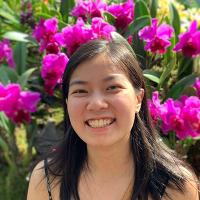The 2021 Data Science for Social Good (DSSG) program was made possible with the support from CIFAR and UBC Faculty of Science, and through project partnerships with the Applied Statistics & Data Science group in the Department of Statistics at UBC, the Institute for Resources, BC Non-Profit Housing Association, Cedar Academy Society, and City of Surrey.
2021 Projects
Creating User-friendly Access to Property-Based Information in BC
Sponsor: BC Non-profit Housing Association & UBC School of Regional and Community Planning
Description: British Columbia is facing a housing crisis. For more than 10 years (2007 to 2018), property prices have been outgrowing wages. The imbalanced development has created an affordability crisis affecting an increasingly larger share of BC residents, who struggle to cover housing costs or live in unsafe or otherwise inadequate arrangements. While the problem has been recognized, lack of high-resolution data has hampered effective policy action and the ability of community groups to advocate for policy change. This project seeks to develop a data platform to empower policy makers and researchers with access to property ownership and real estate transaction data. This will facilitate deeper analysis and modeling of the BC housing landscape to better understand complex issues such affordability, “flipping”, and the purpose-built rental market.
Final Presentation:

The property value data used in this project is generously provided to UBC by BC Assessment.
Pathways for Assessing Surrey’s Green Infrastructure Network
Sponsor: City of Surrey | Parks Division
Description: The City of Surrey is one of BC’s fastest growing municipalities with significant development pressures. It is also one of few cities in Canada with a comprehensive biodiversity conservation strategy and associated long-term habitat connectivity plan (i.e., green infrastructure network). Therefore, it is essential for the City to understand how effective its biodiversity conservation goals are being met as it strives for sustainable growth. To this end, this project seeks to use data to assess and guide its conservation and planning policies by integrating and analyzing relevant spatial and attribute data such as species occurrence, land cover, land use, and habitat suitability in an intuitive web applet.
Final Presentation:

Unbiased Mobility Data with Preferential Sampling
Sponsor: Cedar Academy Society
Description: Public sector and academic communities have been using mobility and traffic data as a proxy measurement for a variety of social topics, from GDP prediction and economic development to greenhouse gas emissions and environmental impact. One method to measure mobility and acquire traffic data is through the analysis of pictures and footage from traffic cameras installed at fixed locations (in urban and rural areas). More often than not, the cameras are installed near locations with heavy traffic, and this introduces sampling bias in the observed data. This leads to a biased dataset and over-exaggerates nearby mobility levels due to “preferential sampling.” This project seeks to correct this preferential sampling and develop an algorithm to better model mobility levels while accounting for the bias in the data set.
Final Presentation:

2021 Fellows

Alexandra Hernandez
Alex is in her fourth year studying Computer Science and Environmental Science. She sees data science as the intersection of her two passions and is interested in the applications of technology to real-world problems, particularly those in climate change and sustainability. She is excited to spend this summer sharpening her technical skills and making a positive impact on her community through the DSSG program. In her free time, Alex enjoys digital art, design, sitcoms and board games.

Anahita Einolghozati
Anahita recently completed her Economics degree. During her undergraduate, she focused on mathematics and statistics based courses and enjoyed econometrics, data science and machine learning in economics. She is now excited to continue her data science journey in the Masters of Data Science at UBC. As a DSSG Fellow, she is hoping to further develop her skills in data science and machine learning.

Anthony Wu
Anthony just completed his third year at UBC studying combined major in computer science and statistics. His interests lie in machine learning, deep learning, computer vision, and statistical modeling for data analysis. Currently, he is working to further understand the machine learning workflow, including data visualization, model building, and data transformation, and how they are deployed. Anthony's involvement in the DSSG program is his first time working with data science in a research setting. He is looking forward to meeting talented and like-minded individuals, as well as exploring technologies commonly used in the data science industry and strengthening technical skills by building large projects.When not studying or working, he enjoys exercising, practicing piano, and studying classical music scores. Anthony is also an amateur pianist, he is a laureate of several international piano competitions and has won many prizes in competitions held in Taiwan and Japan.

Camilo Murra
Camilo is a current MFRE student with a background in ecological economics. His academic development has been data focused since realizing the impact it can have on resource use and conservation efforts. Centring on sustainable development has allowed him to gain experience in estimating causal impacts of policies and economic development on environmental outcomes. He wishes to combine his knowledge of social sciences and data to further address critical issues in today's society to hopefully generate meaningful social impact tailored towards a more equitable world. When not working on social injustices, you can find Camilo at the beach playing tennis or cracking open a cold one.

Ke Zhang
Ke is a PhD student in Psychology. Her current interest is in learning how people make decisions involving money, such as gambling decisions. She has been working with behavioural tracking data of online betting in order to identify problem gamblers and plan evidence-based interventions of problem gambling. Through the DSSG program, she wishes to get involved in the area of policy-making and to make a greater impact on the community. Her favourite data analysis tool is R, and she perhaps spent too much time in configuring her data visualization.

Martin So
Martin is a 4th year Kinesiology student who is interested in breaking into the technology sector. His interest in the realm of data science started with discovering the realm of sport analytics and algorithmic stock trading. Furthermore, his experience as an employee from the public sector has led him to be interested in geospatial data analysis. Martin views the DSSG program as a perfect opportunity for an introduction of real life work of a data scientist.

Nancy Wan
Nancy (Leqi) is a senior student pursuing the combined major in Computer Science and Statistics. Throughout her academic and industry experiences, she has established a good foundation in statistical methodologies as well as solid programming skills. She now has grown a particular interest in data-driven analytics, ML and AI, and wishes to gain more hands-on research experience in related fields. Deeming it as an opportunity to further explore the behaviors of different learning algorithms in practice and bring in more meaningful insights and positive social impacts, she believes the commitment to the DSSG program is going to be rewarding and is excited about diving deep into the pool of data with her team.

Ruiyu Gou
Ruiyu is entering her fourth year in Computer Science combined Statistics. Her current research interest lies in the intersection of computer graphics, robotics and applied machine learning. She looks forward to applying statistics theories and software engineering skills to real-life problems with social impact during her time with DSSG. Outside school, she enjoys books, video games and slaying dragons. She is happy.

Yulia Egorova
Yulia is a PhD student in UBC's Earth and Ocean Sciences Department. Her current research focuses on modeling the distribution and abundance of zooplankton in the global ocean. The project is envisaged to provide crucial insights into biological processes within midwater ecosystem. In a changing world, with rising CO2 levels, more acidic waters, and overexploitation of nearshore resources, an improved understanding of the ecological interactions in the mesopelagic realm is required to predict the impact of climate change on ecological diversity, the productivity of the ocean that in turn affect global fish harvests. The major societal benefit of the proposed research will occur through increased understanding of the ocean's connection to global climate and how ecologically and economically significant fisheries are affected. Though DSSG program, Yulia would like to further develop her skills in data analysis and machine learning and to help find the solution to the posed challenges.